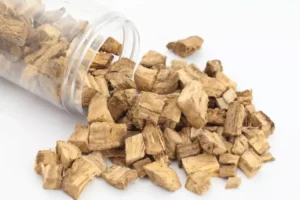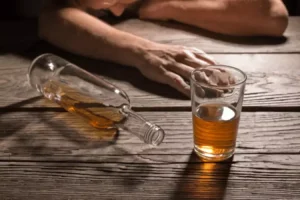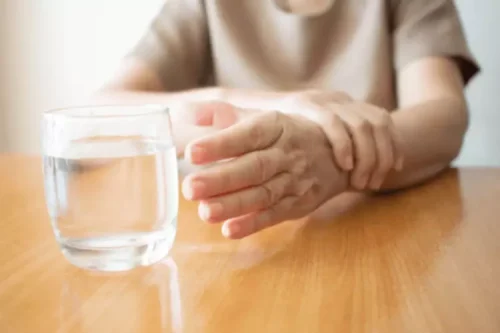
Affected nerves include the peripheral nerves, primarily located in the arms and legs, and the autonomic nerves, which help regulate our internal body functions. Treatment of ALN aims to reduce further damage to the peripheral nerves and restore their normal functioning. What is crucial during ALN treatment is the alleviation of the major causation of ALN which is alcohol abuse. Alcohol abuse treatment might lead to a resolution of neuropathic pain and alleviation of its symptoms. what are the early stages of alcoholic neuropathy This can be achieved by complete alcohol abstinence and a balanced diet primarily supplemented by B6, B12, and E vitamins, as well as folate, thiamine, and niacin.

Indiana Medical Detox Center
- Symptoms include numbness, tingling, burning sensations, muscle weakness, and changes in bodily functions.
- In mild cases, symptoms may improve within months, but the damage may be irreversible in more severe cases.
- A mechanism of cisplatin chemotherapy-induced peripheral neuropathy was elucidated in an in vitro mouse model.
- It damages the nerves outside the brain and spinal cord, known as peripheral neuropathy.
A healthcare professional can offer support for people with alcohol use disorder. A doctor may also recommend treatments to manage neurological symptoms, such as pain relief medications, physical therapy, and mobility aids. Alcohol causes neuropathy via multifactorial processes, many of which are still under investigation. Alcohol enters the Sober living house bloodstream from the digestive system within 5 minutes of consumption, and peak absorption is seen within 30 to 90 minutes.
History and Physical

PCT seems to be valuable due to the correlation between prolongation of pupil oscillation and exacerbations of cardiovascular symptoms which presents the colinear involvement of parasympathetic division of ANS. ALN can manifest differently, and patients might experience one, two, or even more clinical manifestations of ALN. Patients who have ALN might present such symptoms as cramps, impaired movement of the limbs, muscle atrophy, muscle weakness, spasms, or contractions, loss of sensation, or feeling of tingling. Besides, the gastrointestinal and urinary systems are also affected and include the presence of diarrhea, constipation, nausea, swallowing difficulties, abdominal bloating, and urinary retention. Neuropathy can be partially reversed if treated early and alcohol consumption is stopped, but in advanced cases, the nerve damage may be permanent.
What are Treatment Options for Alcoholic Neuropathy?
- Thus, ALN might be induced by the combination of the effects of the direct activity of alcohol metabolites on the nerve fibers along with nutritional deficiencies primarily in a form of thiamine deficiency.
- Thiamine deficiency is closely related to chronic alcoholism and can induce neuropathy in alcoholic patients.
- Alcoholic neuropathy might sound frightening, but understanding its symptoms, treatments, and the importance of prevention puts you in control Each action step, though small, is a leap towards a healthier, more fulfilling life.
- Glutamate concentrations are elevated in the superficial dorsal horn of rats after chronic ligature of the sciatic nerve 79.
- Neuropathy has multifactorial causes, ranging from nutritional deficiencies to the toxic effects that alcohol has on neurons.
- Early cases may see improvement in a few months, while severe cases can take over a year, and some damage may be irreversible.
HVRC’s Drug & Alcohol Addiction Program provides medically supervised detox and rehab for alcoholism and other types of chemical dependency. Patients are encouraged to help develop their individual treatment plans, which include therapy, education, and relapse prevention. Good physical health is important to confidence and resilience, both of which are vital factors in preventing relapse and further health problems. The basic components are diet, sleep, exercise, and time for relaxation and self-pampering. Since your ability to engage in some of these may be https://ecosoberhouse.com/ affected by neuropathy and/or alcoholism, schedule an appointment with a doctor or therapist to create a detailed, individualized health plan.
- Therefore, alcoholic neuropathy may occur by a combination of the direct toxic effects of ethanol or its metabolites and nutritional deficiencies, including thiamine deficiency.
- While some symptoms may improve with alcohol cessation and proper treatment, long-term damage may remain in advanced cases.
- Continued alcohol use exacerbates the condition, leading to further deterioration of nerve health.
- So, the nerve damage of alcoholic neuropathy is generally permanent and likely to worsen if the person does not stop drinking.
- CDT is an indirect metabolite of ethanol and constitutes either a marker of prolonged, heavy alcohol consumption or a marker of relapse.
Variability in Alcohol Nerve Damage Severity and Combination
Your doctor will have to do their best work to save the nerves you do have left. And if it is diabetes, you’re probably already experiencing things like a loss of eyesight or kidney damage. There’s a chance you will see positive changes if you change your diet right away. In the most severe cases, these infections may lead to amputation or death, so you need to seek immediate medical care. No matter what type of neuropathy you have, if you reach stage three, your injuries can lead to more severe infections, such as sepsis and gangrene.

The treatment rests on abstinence from alcohol and the replacement of key nutrients. Unfortunately, patient compliance is poor, and the condition often progresses, leading to poor quality of life. Primarily, thiamine deficiency is the crucial risk factor of ALN since it induces the progression of Korsakoff’s syndrome and beriberi 144, 145. Due to similar histologic and electrophysiological symptoms, it was believed that ALN may make up a subtype of beriberi 146.
- Alcoholic neuropathy is caused by nutritional deficiency, as well as toxins that build up in the body.
- While full recovery is possible for some, others may need ongoing treatment to manage symptoms.
- Vitamin E is used to refer to a group of fat-soluble compounds that include both tocopherols and tocotrienols.
Alcohol Abuse and Nerve Damage

The sooner someone stops drinking and seeks treatment, the better their chances of healing and preventing further damage. While full recovery is possible for some, others may need ongoing treatment to manage symptoms. While there is no cure for alcoholic neuropathy, the primary goal of treatment is to manage symptoms, prevent further nerve damage, and promote overall health and wellbeing. The improvement timeline for alcoholic neuropathy does vary significantly among individuals, depending on several factors including the severity of the problem and amount of time has passed since cessation of drinking. A study published in the journal Alcohol and Alcoholism found that among patients with alcoholic neuropathy who maintained abstinence, 82% showed improvement in clinical and electrophysiological parameters after 24 months.
